
Part 1: RAR - List of Threats
As part of the Bandtree Business Continuity Management (BCM) framework, this Risk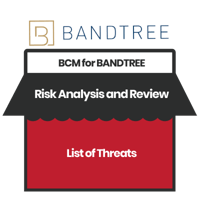 Assessment and Review (RAR) section identifies and categorises potential threats that may disrupt business operations.
Assessment and Review (RAR) section identifies and categorises potential threats that may disrupt business operations.
 Given Bandtree’s role as a government-linked company (GLC) under Darussalam Assets, specialising in corporate property management, it is essential to ensure continuity of services across all critical functions and infrastructure.
Given Bandtree’s role as a government-linked company (GLC) under Darussalam Assets, specialising in corporate property management, it is essential to ensure continuity of services across all critical functions and infrastructure.
This chapter outlines threats that may occur at both the national (Brunei) and organisational levels, particularly affecting Bandtree’s headquarters located at HQ Building, Simpang 751, Jalan Pantai Jerudong, BG3122, Brunei Darussalam.
The threats are categorised according to internationally recognised business continuity threat classifications: Denial of Access – Natural Disaster, Denial of Access – Man-made Disaster, Unavailability of People, Disruption to the Supply Chain, and Equipment and IT-Related Disruption.
The comprehensive identification of threats in this section forms the foundation for subsequent risk analysis, mitigation planning, and recovery strategy development for Bandtree’s operations.
Table 1: [RAR] [T1] List of Threats for Bandtree
|
Category of Threats |
Types of Threats |
Description of Threats |
Country Level (Brunei) |
Organi-sation Level (Bandtree HQ) |
|
Denial of Access – Natural Disaster |
Flood, Flash Flood, Drought, Heat Wave, Lightning, Rain, Fog/ Haze, Wind |
Natural events that may prevent access to premises or disrupt operations, for example, heavy rain causing flooding around HQ or haze affecting staff access |
Yes |
Yes |
|
|
Earthquake Tremors |
Seismic activity potentially impacting infrastructure stability or safety. |
No |
Yes |
|
|
Storms: Thunder, Tropical Storm, Typhoon |
Severe weather events may result in the temporary closure of offices, power outages, or structural damage. |
Yes |
Yes |
|
Denial of Access – Man-made Disaster |
Fire – Wild, Urban |
Fires originating externally or within the building, potentially causing evacuation or damage to infrastructure. |
Yes |
Yes |
|
|
Bomb Threat / Explosion, Terrorism |
Security incidents that could render premises inaccessible due to safety protocols or actual events. |
Yes |
Yes |
|
|
Power Outage |
Loss of electricity that disrupts building access controls and critical systems. |
Yes |
Yes |
|
Unavailability of People |
Infectious Disease / Pandemic, Haze |
Health-related issues, such as a widespread respiratory illness or persistent haze, can lead to reduced staff attendance. |
Yes |
Yes |
|
|
Labour Dispute / Strike |
Industrial actions that may disrupt staff availability, particularly for services that impact assets or properties. |
No |
Yes |
|
|
Workplace Safety / Violence, Loss of Key Appointment Holders |
Internal risks affecting staff attendance or the incapacitation of key leadership or expertise. |
Yes |
Yes |
|
Disruption to the Supply Chain |
Loss of Specialised Vendor / Supplier, Default of Key Debtors |
Contractors or vendors failing to deliver services (e.g., cleaning, security, maintenance), adversely affecting operations. |
Yes |
Yes |
|
|
Regulatory or Legal Violation |
Changes in government regulations impacting property operations or contractual obligations. |
Yes |
Yes |
|
|
Accidents (Aviation, Rail, Maritime, Vehicular) |
Disruptions due to accidents affecting logistics or staff commuting to HQ. |
Yes |
Yes |
|
Equipment and IT‑Related Disruption |
IT Failure (Hardware, Software), Network Failure |
Breakdown of IT systems critical to property management (e.g., access systems, maintenance portals). |
Yes |
Yes |
|
|
Telecommunications Failure |
Loss of phone or internet connectivity is affecting coordination and monitoring operations. |
Yes |
Yes |
|
|
IT Sabotage |
Malicious attacks harm operational systems, potentially disabling critical management functions. |
Yes |
Yes |
|
|
Facilities & Equipment Failure (HVAC, UPS, Generators, Lift, A/C) |
Failure of physical building systems affecting habitability and access—e.g., air-conditioning breakdown, generator failure. |
Yes |
Yes |
Notes
- Threat categories and types follow the BCM Institute Guidance Notes template for RAR Part 1 – List of Threats.
- The “Country Level” indicates whether the threat is known to occur in Brunei (fit for national-level risk scoring).
- The “Organisation Level” reflects the potential impact on Bandtree, assuming they operate from a single headquarters facility.
- For Bandtree’s asset and property functions, all identified threats can affect operations to varying degrees.
Summing Up ...
Identifying relevant threats is a critical first step in ensuring that Bandtree remains resilient in the face of potential disruptions.
By recognising specific threats that may arise due to Brunei’s environmental, geopolitical, and operational landscape, Bandtree can better anticipate risks, assess their potential impact, and prioritise resources for mitigation.
This threat profile will support Bandtree in developing appropriate recovery strategies, enhancing risk awareness, and reinforcing preparedness across departments.
The following sections will build upon this threat landscape to formulate tailored risk treatment measures, control activities, and business continuity strategies to safeguard Bandtree’s corporate property management responsibilities and uphold service delivery under all circumstances.
More Information About Business Continuity Management Courses
To learn more about the course and schedule, click the buttons below for the BCM-300 Business Continuity Management Implementer [BCM-3] and the BCM-5000 Business Continuity Management Expert Implementer [BCM-5].




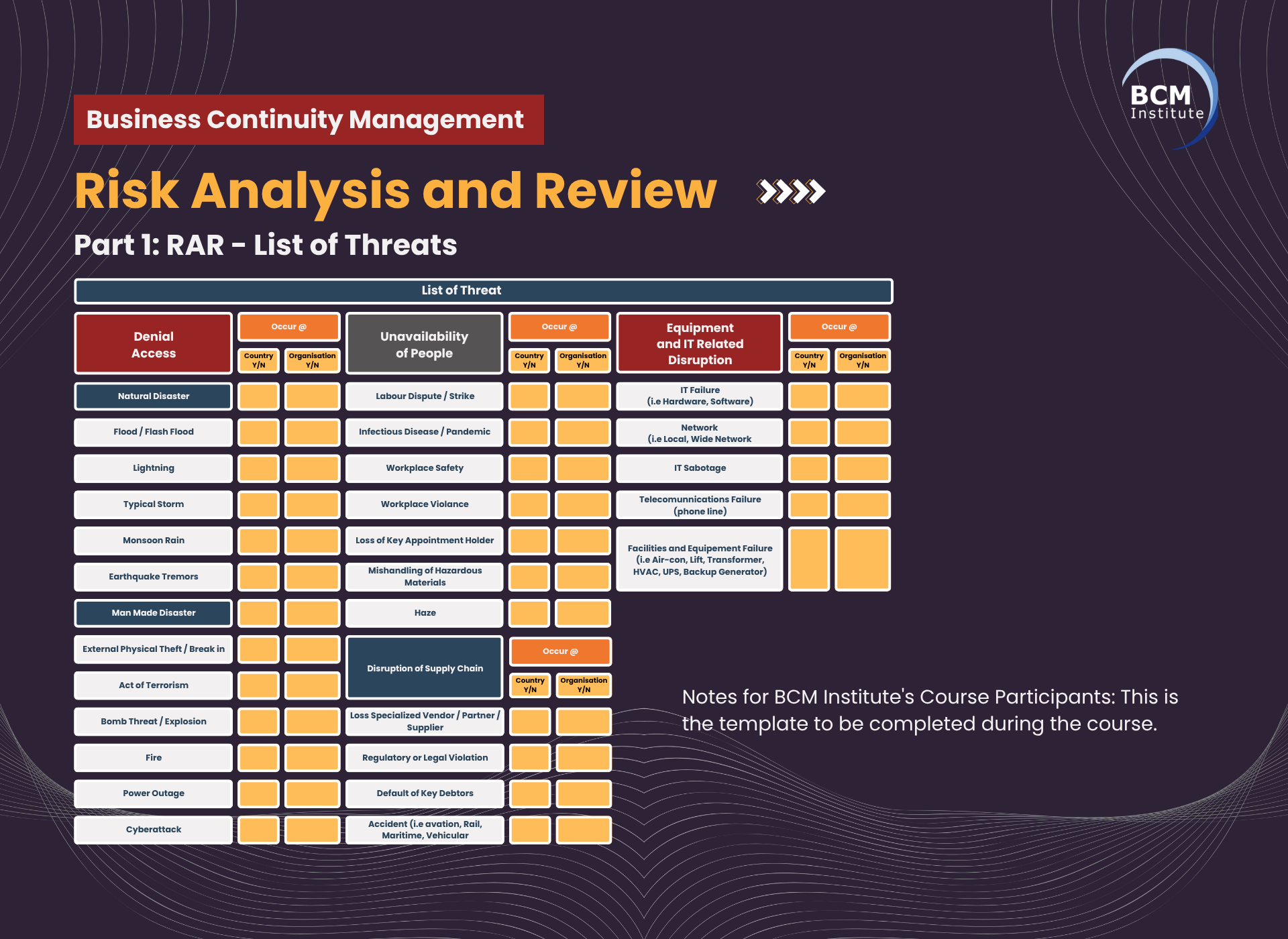
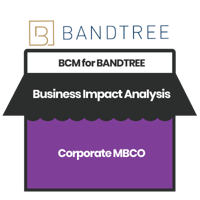
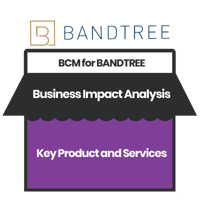
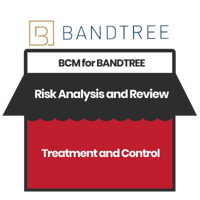
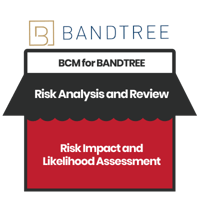
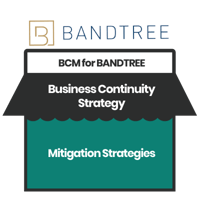
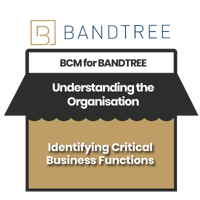
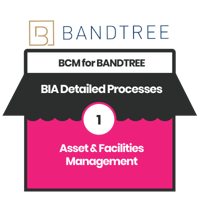
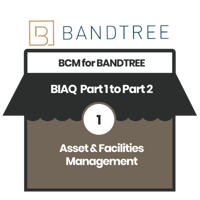
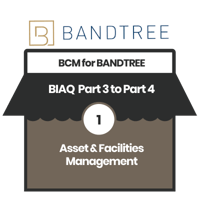
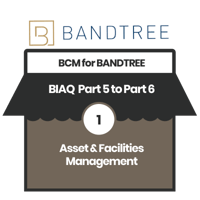
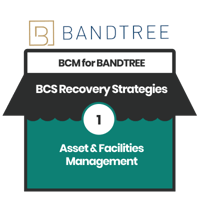
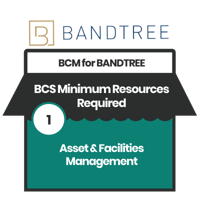
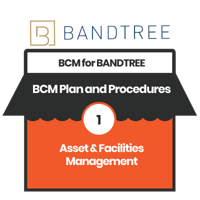


![Register [BL-B-3]*](https://blog.bcm-institute.org/hs-fs/hubfs/hub_generated/resized/19a8306f-6b76-45ff-8585-95111f393aeb.png?width=200&height=56&name=19a8306f-6b76-45ff-8585-95111f393aeb.png)



![FAQ [BL-B-3]](https://blog.bcm-institute.org/hs-fs/hubfs/hub_generated/resized/9b7f5669-8ad6-450b-a98f-5f5d49ebfc8e.png?width=150&height=150&name=9b7f5669-8ad6-450b-a98f-5f5d49ebfc8e.png)
![Email to Sales Team [BCM Institute]](https://blog.bcm-institute.org/hs-fs/hubfs/hub_generated/resized/83ae9ad3-affc-416e-8f51-64218d6d98f2.png?width=100&height=100&name=83ae9ad3-affc-416e-8f51-64218d6d98f2.png)





